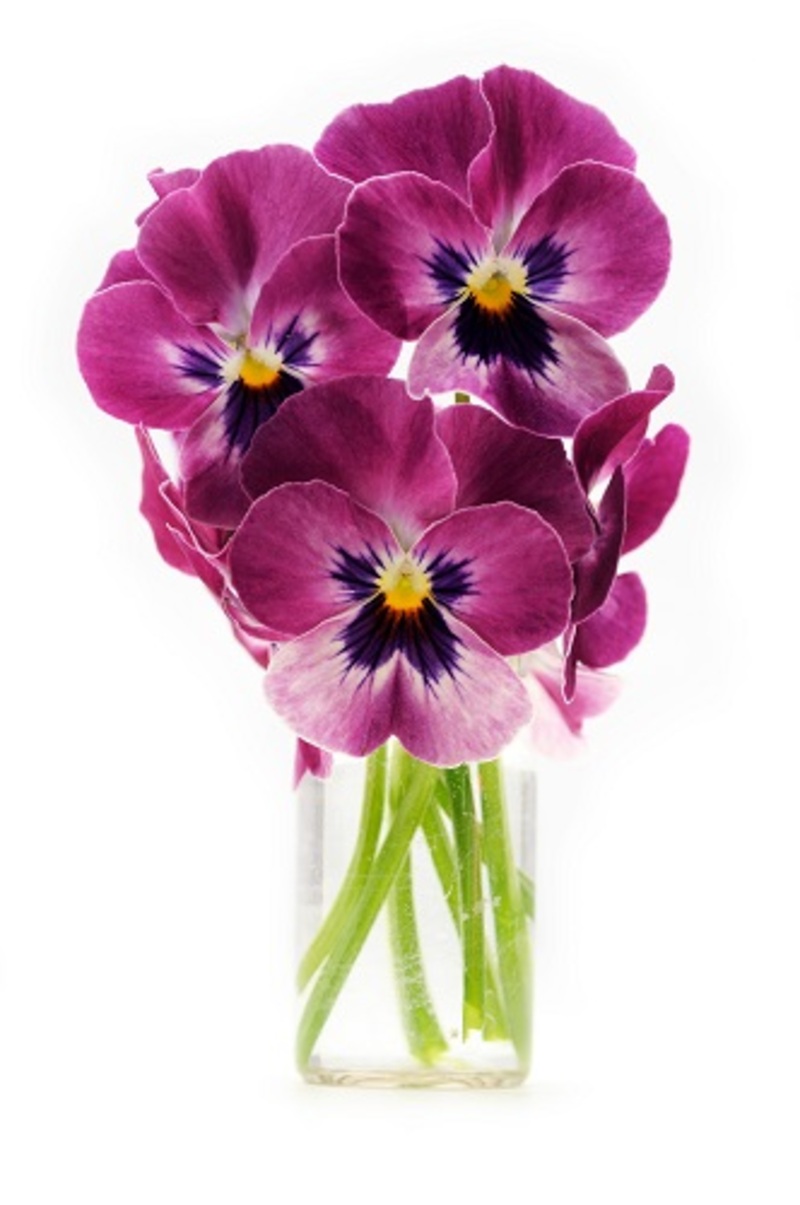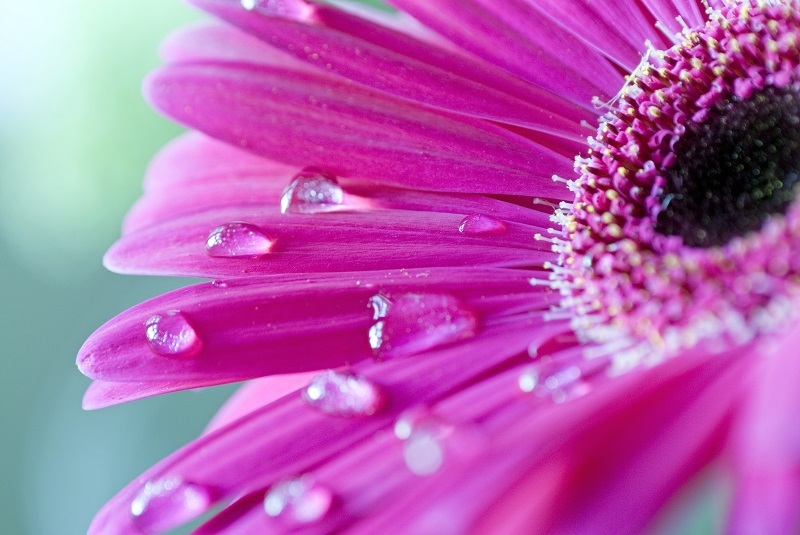A Deep Dive into the Symbolism of Peony Flowers
Posted on 18/08/2025
A Deep Dive into the Symbolism of Peony Flowers
Peonies have graced gardens, paintings, and poetry for centuries, their lush blooms and captivating fragrance enchanting admirers across the globe. But beyond their visual beauty, peony flowers hold profound symbolism in various cultures, literature, and even modern life. This comprehensive exploration will unravel the rich tapestry of meanings, stories, and cultural values tied to peonies, making it an essential read for flower enthusiasts, gardeners, and anyone curious about the deeper connotations of these beloved blossoms.
The Alluring Beauty of Peony Blossoms
The peony, belonging to the genus Paeonia, is native to Asia, Europe, and North America. Its majestic, multi-petaled blooms have made it a cherished ornamental plant throughout history. But what truly elevates the peony flower's symbolism is not just its visual splendor, but its association with legends and meanings that have resonated with people for centuries.
- Varieties: Herbaceous, tree, and intersectional (Itoh) peonies.
- Colors: White, pink, red, yellow, coral, and more, each with unique symbolism.
- Blooming Season: Late spring to early summer, a symbol of renewal.
Visual and Fragrant Appeal
The peony's large, showy blooms symbolize prosperity and good fortune, whereas its intoxicating scent often features in perfume and aromatherapy, further reinforcing the flower's connection with beauty and abundance.

The Origins of Peony Symbolism: Myth and Folklore
Greek Roots
Peonies derive their scientific name from Paeon, a physician to the gods in Greek mythology. According to legend, Paeon used the peony flower's medicinal properties to heal Pluto, angering his teacher Asclepius, who became jealous. To save him, Zeus transformed Paeon into the beautiful peony flower. Hence, even in antiquity, the peony flower meaning was intertwined with healing and protection.
Chinese Legends and Significance
China is often considered the cradle of peony symbolism. In Chinese folklore, the peony is called the "king of flowers" (?? mudan), often associated with royalty, prosperity, and honor. Emperors cultivated vast peony gardens, and the flower features prominently in Chinese art and literature.
- Imperial Emblem: Symbol of noble rank and wealth
- Classic Literature: Peonies symbolize the fleeting, graceful nature of beauty
- Festivals: Celebrated during the Luoyang Peony Festival
Legends tell of emperors gifting peonies to loved ones as tokens of affection and respect, emphasizing their role in romance and nobility.
The Peony Flower's Symbolic Meanings: A Global Perspective
Love and Romance
Throughout history, peony symbolism has been closely linked to romantic love. The flower's lush, overlapping petals and intoxicating fragrance have made it a quintessential feature in wedding bouquets and love poems. In both the East and West, peonies symbolize happy marriages and a blissful domestic life, making them one of the most favored flowers at nuptials.
- China: "Botanical queen" representing feminine beauty and affection
- Victorian England: Peonies symbolize bashfulness and the sincere intention of courtship
- Modern Weddings: Popular choice for bouquets due to their association with happy unions
Prosperity, Honor, and Nobility
Peony flowers are consistently associated with prosperity and honor in many cultures. The peony's opulent appearance and long-established presence in palace gardens have solidified its connection with good fortune and high social status.
- In Chinese culture, red and pink peonies are especially regarded as symbols of wealth, success, and high rank.
- In Japan, the peony is called "the prime minister of all flowers," and represents a noble spirit.
If you wish to wish someone good luck or acknowledge their accomplishments, gifting a peony bouquet can be a thoughtful, meaningful gesture.
Healing and Protection
The medical roots of the peony's name are no coincidence. Ancient Greeks and Romans believed that the peony possessed potent healing powers, capable of driving away evil spirits and curing a number of ailments. Dried peony roots and seeds were worn as amulets and used in traditional medicine.
- Herbal Lore: Used in Traditional Chinese Medicine for centuries
- Protective Symbol: Hung in homes to ward off misfortune
In essence, the peony represents not only beauty and prosperity, but also wellbeing and safety, underlining its importance in holistic symbolism.
The Symbolism of Peony Flower Colors
Different peony flower colors convey specific messages and emotions. Understanding their meanings enriches our appreciation and allows us to select peonies for the right occasion.
White Peony Symbolism
White peonies symbolize purity, innocence, and modesty. In Chinese culture, they are sometimes offered as a gesture of apology or to convey regret. In the West, white peonies are popular at weddings and are symbols of new beginnings and a pure heart.
Pink Peony: Romance and Young Love
Pink peonies represent youthful romance, happy relationships, and grace. These blooms are often gifted among lovers or close friends, radiating warmth and affection.
Red Peony: Honor and Respect
As the color of luck and celebration in China, red peonies are coveted during festivals and major life events. They symbolize honor, respect, and richness, making them the perfect florals for significant achievements or milestones.
Yellow and Coral Peonies: Good Fortune and Happiness
Yellow and coral peonies are rare and radiant. These colors represent good fortune, happiness, and a joyful, vibrant life. They're often included in festive bouquets to brighten spirits and spread optimism.
Peony Symbolism in Art, Literature, and Culture
Peony flower symbolism is omnipresent in Eastern and Western art forms, and its legacy endures in contemporary culture.
Peonies in Chinese Art and Poetry
The imperial courts featured peonies in scrolls, porcelains, and embroidery. Poets penned verses about their transient beauty as a metaphor for the fleeting nature of fame and life.
- Famous example: Bai Juyi's peony poems from the Tang dynasty
- Symbol of virtue and ephemeral joy in calligraphy and ink paintings
Peonies in Japanese Tattoos
In Japanese tattooing (irezumi), the peony often appears alongside lions or dragons, symbolizing a balance of ferocity and beauty, and the virtues of bravery and honor.
- Represents boldness, extravagant living, and resilience
- Common motif in samurai-related art
Western Art and Peony Symbolism
Peonies found their way into European paintings--particularly in the Victorian era--where they indicated bashfulness and gentle sentiment. Impressionist artists like Renoir and Monet painted peonies to celebrate their lush texture and vibrant color.
- Symbol of fleeting youth and beauty in still life art
Peony Flowers in Modern Context
Today, the deeper meaning of peonies continues to influence art, fashion, and design. From elegant wallpapers to haute couture embroidery, peonies have become emblems of luxury and romanticism in the 21st century.
- Floristry: Peonies are constantly in demand during wedding season for their strong symbolism of happy marriage.
- Home Decor: Prints and motifs evoke a sense of abundance and timeless beauty.
- Perfume Industry: Peony fragrances conjure up notions of spring, renewal, and feminine allure.
Peony in Feng Shui
In Feng Shui, peonies are placed in the living room or bedroom to attract love, wealth, and positive energy. Their presence is believed to harmonize relationships and create an auspicious household environment.
Cultural Celebrations and Peony Festivals
Cities like Luoyang in China and Ueno in Japan host vibrant peony festivals, where thousands of visitors marvel at blooming peony gardens, participate in traditional performances, and immerse themselves in the cultural heritage of this majestic flower.
How to Gift Peonies: Occasions and Meanings
Understanding the symbolic meanings of peonies can help you choose the right bouquet for special occasions. Below are some recommendations:
- For Weddings: Choose pink or white peonies for love and new beginnings.
- Graduations and Promotions: Opt for red or yellow peonies to symbolize good fortune and honor.
- To Soothe or Apologize: White peonies convey sincerity and a desire for a clean slate.
- Celebrating Friendship: Gift coral peonies, which signify happiness and cheerful energy.
Tip: Presenting a peony arrangement with a handwritten note about its meaning makes the gesture even more thoughtful.
Growing Peonies: A Symbolic Act in Your Garden
Cultivating peonies isn't just about enjoying their beauty; it's also about inviting their rich symbolism into your home. Here's why planting peonies can be a meaningful act:
- Resilience: Peony plants can live for decades if properly cared for, representing enduring love and prosperity.
- Annual Renewal: Their return each spring is symbolic of hope and new beginnings.
- Sharing Beauty: Bouquets from your garden can become heartfelt, meaningful gifts.
Basic Tips for Peony Success
- Plant peonies in well-drained soil and a sunny spot.
- They require cold winters to trigger blooming (essential for robust symbolism of renewal).
- Minimal maintenance rewards with abundant, showy flowers each year.

Conclusion: The Enduring Legacy of Peony Flower Symbolism
The symbolism of peony flowers is as vast as it is profound. From their mythological origins and imperial prestige to their modern celebration in art and personal gifting, peonies have captured the collective imagination of societies throughout history. Whether you wish to express love, honor, gratitude, or well-wishes of prosperity, peonies offer an eloquent language all their own.
In exploring the deep meaning of peony flowers, we discover that their allure transcends mere aesthetics, offering lessons in resilience, healing, and the beauty of life's seasons. So, the next time you encounter a blooming peony, take a moment to reflect on its rich symbolic legacy--and perhaps, share that magic with someone special.
Frequently Asked Questions about Peony Flower Symbolism
-
Q: What do peonies represent in Chinese culture?
A: In China, peonies are regarded as symbols of honor, wealth, prosperity, and feminine beauty. They are often featured in art, official emblems, and traditional celebrations. -
Q: Are peonies suitable for all occasions?
A: Yes! With their range of symbolic meanings depending on color, peonies can be gifted for weddings, birthdays, apologies, or even as tokens of affection and respect. -
Q: How long do peonies bloom?
A: Peonies have a brief but memorable blooming period, generally lasting a few weeks in late spring or early summer--an apt metaphor for the fleeting nature of beauty. -
Q: Why are peonies so popular in wedding bouquets?
A: Their lush blooms, soft colors, and symbolism of love, protection, and good fortune make peonies a favorite for weddings, representing blessings for a happy union.
Embrace the enduring charm and meaning of peony flowers--in your garden, your celebrations, or your acts of kindness--and let their symbolism bloom in all aspects of your life.
Latest Posts
Radiant Flowers for an Unforgettable Birthday
Unveil the Secrets to Nourishing Cut Flowers
Expert Techniques for Extending Poinsettia Life





